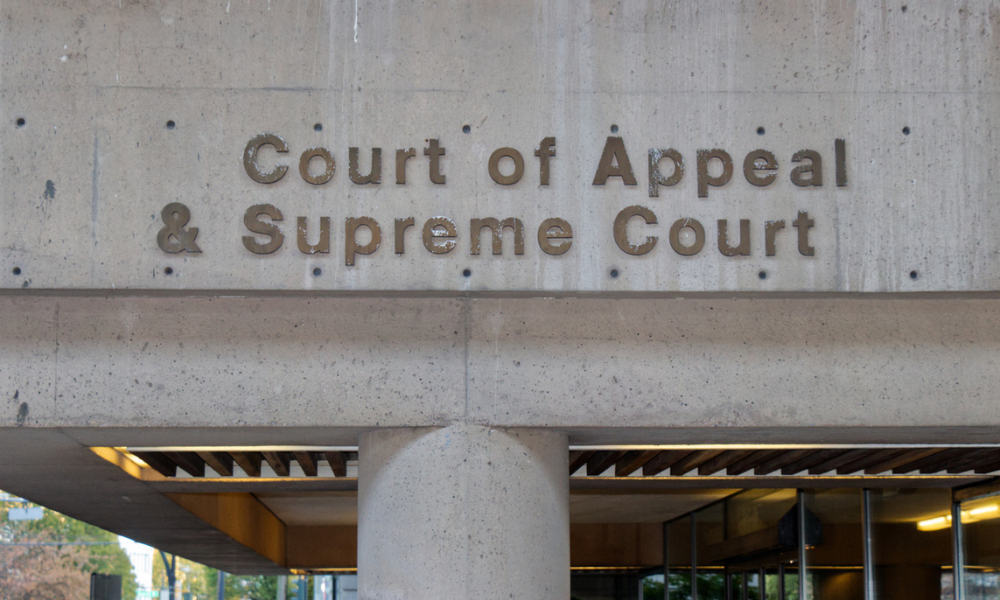Judge 'arrived at a wholly erroneous estimate of the loss,' court said

In a lawsuit involving a motor vehicle accident, the Court of Appeal for British Columbia has rejected an “inordinately low” award for an injured teacher’s loss of future earning capacity after finding that the judge erred in assessing the estimate of the loss.
In Lo v. Vos, 2021 BCCA 421, the parties were in a motor vehicle accident in 2014. In her suit, the appellant claimed that because of the accident, she suffered physical and psychological injuries and her income-earning capacity as a teacher was permanently impaired.
B.C. Supreme Court Justice Karen Horsman ruled in favour of the appellant. In assessing the claim for loss of future earning capacity, Justice Horsman accepted that it should be based on the appellant’s potential earnings as a teacher, but disagreed that the evidence established a permanent, near-total impairment of her earning capacity. Instead, she found that the evidence established a real and substantial possibility that the appellant would experience indefinite impact on her future earning capacity. She awarded the appellant $300,000 for loss of future earning capacity but reduced the amount to $240,000 based on 20 per cent contingency deduction.
On appeal, the appellant alleged that the award “was a wholly erroneous estimate of her damages and inordinately low.” She further alleged that despite the evidence establishing a real and substantial possibility that she would experience an indefinite impact on her earning capacity, Justice Horsman failed to consider the extent of that possibility in assessing her claim. The respondent contended that Justice Horsman’s assessment was entitled to deference.
In its decision, the B.C. Court of Appeal held that by failing to analyze the consequences of the real and substantial possibility that the appellant would experience indefinite impact on her future earning capacity, Justice Horsman “arrived at a wholly erroneous estimate of the loss.”
The court noted that while Justice Horsman was open to rejecting the expert witness’ opinion that the appellant would be incapable of working as a teacher, it remained necessary on her part to consider the parameters of the real and substantial possibility of indefinite impact that she accepted.
“Instead, [Justice Horsman] proceeded directly to her conclusion that it was reasonable to expect the [appellant] to be off work in the short-term, which she later set at four years. That conclusion, in my opinion, was open to [Justice Horsman], but given the real and substantial possibility she found, it was necessarily a starting point, not the end of the analysis,” Justice Christopher Grauer said.
The court determined that while Justice Horsman properly acknowledged that a claim for loss of future earning capacity would require a comparison between the appellant’s likely future working life if the accident had not happened and her likely future working life after its occurrence, she did not assess the loss on that basis.
“It appears that the [Justice Horsman] began to do so with her finding that the appellant’s claim should be based upon her potential earnings as a teacher (her likely future if the accident had not happened). But she could not make any proper assessment of the appellant’s likely future working life after the accident’s occurrence without assessing the consequences and likelihood of the real and substantial possibility of indefinite impact that she accepted was established by the evidence,” Justice Grauer said.
The court considered the award of $240,000 “inordinately low” and granted the appellant $810,000 instead.









